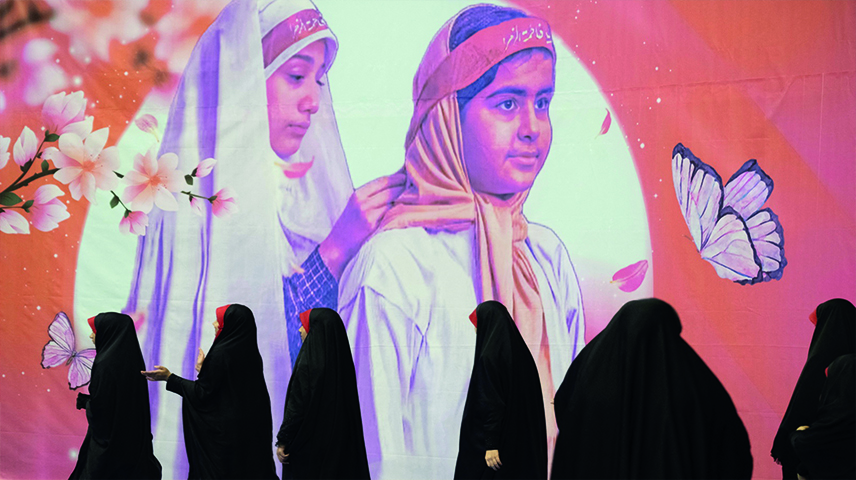Political upheavals that bring violent groups to power pose existential threats to civil culture, historical heritage, and peaceful coexistence among diverse communities. These groups prioritize forcefully imposing their vision, a pattern observed in Afghanistan and Sudan over time. Nations with deep-rooted civil traditions, like Tunisia and Egypt, have successfully resisted such attempts, while countries lacking firmly established citizenship and coexistence, such as Libya, continue to grapple with these challenges.
Syria, with its rich centuries-old history and diverse ethnic and religious tapestry, now faces a similar trial. The conflict pits societal components against armed minority factions attempting to enforce rigid religious rules, leveraging their dominance on the ground.
Countries boasting advanced civil cultures and well-established citizenship-based states serve as bastions against the spread of these groups and their exclusionary ideologies. In a global context that values rights, freedoms, and diversity of belief and expression, such groups appear increasingly isolated and alien.
The persistent Afghan model and other examples born from the same ideology of extremism and exclusion demand reevaluation. Ignoring these issues is no longer tenable. These attempts strike at the very core of societies, plunging them into resource-depleting conflicts that ravage human capital and infrastructure. The resulting political, economic, social, and cultural devastation proves difficult to mend, as evidenced by numerous historical examples.
Culture in the Sustainable Development Goals
In the framework of the Sustainable Development Goals (SDGs) adopted by the United Nations in September 2015, international development agendas addressed culture for the first time. UNESCO hailed this move as "an unparalleled acknowledgment." Protecting and promoting culture not only serves as an end in itself but also directly contributes to several SDGs, including creating safe and sustainable cities, promoting decent work and economic growth, reducing inequalities, supporting the environment, advancing gender equality, and fostering peaceful and inclusive societies.
Indirect cultural benefits accumulate through enlightened governance that is culturally aware and effective in achieving development goals. Such an approach represents the sole path to societal progress—not through entrenched sectarianism or imposing a single religious culture on multi-religious and multi-ethnic communities. Without these unifying concepts, states spiral into failure cycles, eventually collapsing into fragmented, warring factions.
Conflicts persist when local leaders believe they can achieve strategic objectives through military confrontations in a "zero-sum game." Initially, hubris prevails about a swift resolution to the conflict. Over time, these ruling groups impose their dominance, targeting societies' identities and attempting to sever ties with the past. They create a new trajectory that clashes with elements they oppose, leading to polarized, exclusionary, and violent environments in every previous case.
Consider the implications of erasing parts of a rich history simply because it celebrates the achievements of non-believing kingdoms or banning poetry and literary texts deemed religiously incompatible. The cycle of exclusion begins with oppressive measures, such as restricting girls' education and limiting women's work, reminiscent of dark eras humanity thought it had surpassed. Yet, in parts of the Arab world, such practices are being revived under the guise of forging a new societal path.
The Impact on Women and Girls
Women in conflict zones like Yemen, Libya, Syria, and Sudan endure disproportionate hardships after a decade of civil wars. Ongoing conflicts intensify gender-based and sexual violence, limit women's and girls' mobility, and impede access to essential services and employment. During food shortages, women and girls often eat last and fall victim to famine first. Families losing primary breadwinners frequently leave women in extreme poverty and deprivation.
Armed groups exploit these vulnerabilities to subjugate women and girls, molding them according to rigid, extremist visions. Afghanistan exemplifies this phenomenon, which has spread to other regions, perpetuating the misguided notion that stability can only be achieved by empowering fundamentalist religious movements. Such flawed perspectives disregard the long histories and rich traditions of these ancient peoples.
Modern extremism's rise can be traced to the 1970s conflicts in Afghanistan, which spawned violent versions of militant Islam. Earlier calls for an "Islamic Awakening" failed to gain traction due to the prevalence of cohesive nation-states and robust civil cultures. Aligning with such policies and practices, and their expansion into major countries in the region, poses a fundamental threat to the survival of these states and endangers coexistence within stable societies across the area.
Euphoria experienced by these groups upon gaining power and establishing themselves exacerbates the risk. Operating as political-evangelical entities, they refuse to remain confined within their borders. Instead, they seek to export the model tolerated within their own societies, leading to further unrest, conflict, and the undermining of successful developmental models. Their ultimate aim is to spread an exclusionary, fundamentalist ideology that claims a monopoly on truth.
The Need for Vigilance
Vigilance remains crucial, and the proliferation of this destructive model must not be tolerated, particularly during this critical phase. Inaction would plunge the region into an unnecessary and chaotic ideological conflict—one it can ill afford given the current circumstances.


